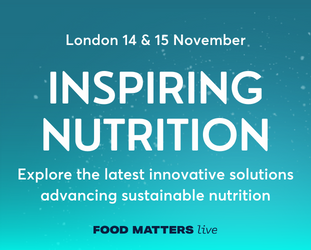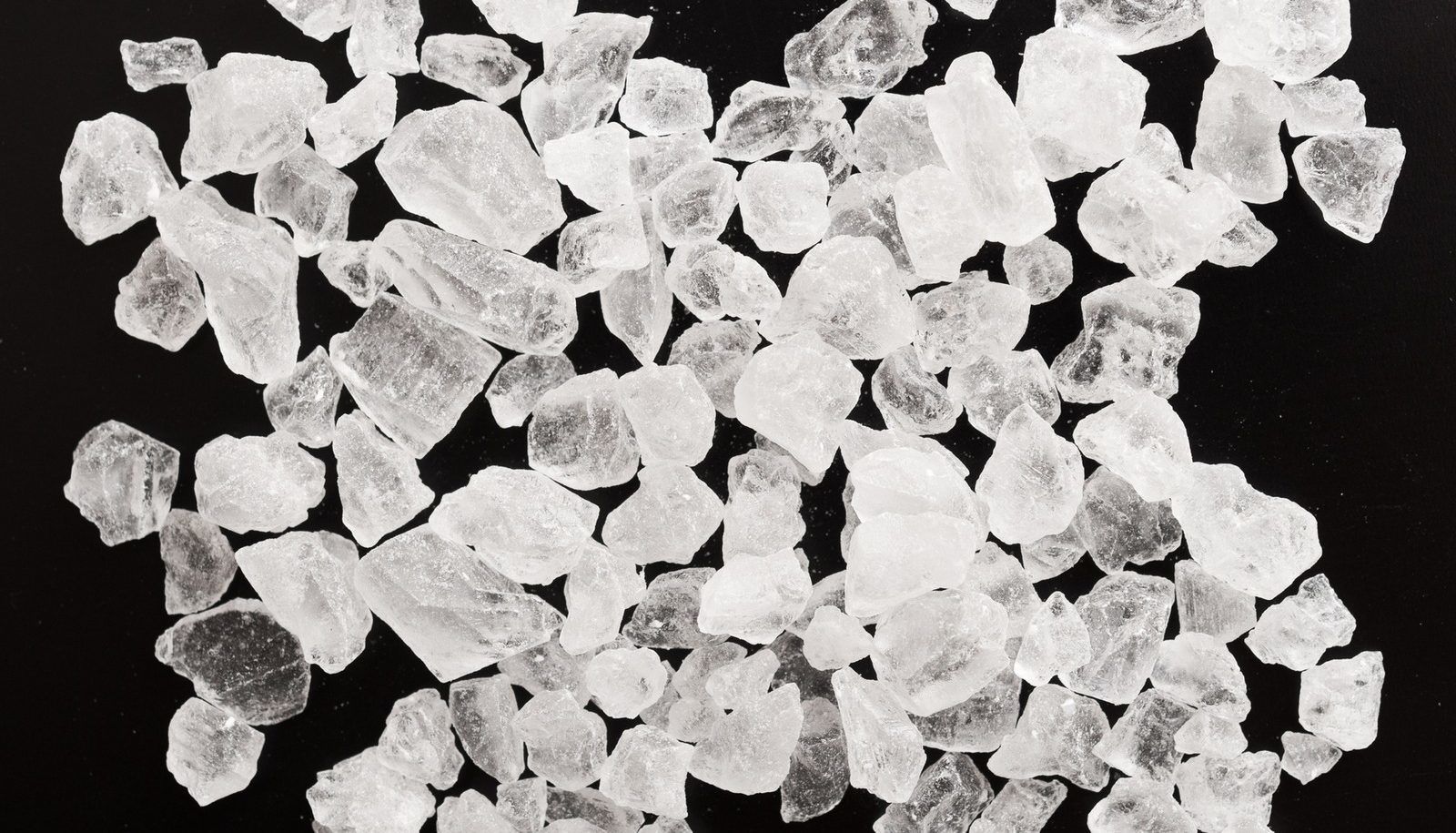Innovations in the ever-expanding diabetic food and drinks market and the 10 start-ups driving change in the sector

The diabetic food and drink market is quickly changing. Diabetes is a growing global health crisis. A recent study from the charity Diabetes UK shows that one in 10 adults could have diabetes by 2030, while the WHO noted earlier this year that around 422 million people have diabetes globally – 314 million more compared to 1980 – with the highest rates being in low-and middle-income countries. Diabetes is one of the leading causes of deaths worldwide, and main factor in causing blindness, kidney failure, heart attacks, strokes, and amputation of the lower limbs.
The disease is a chronic condition where the pancreas does not produce enough insulin to control the levels of sugar in the blood. When food digests in the body, insulin normally moves glucose from the blood to the cells, where it is broken down and turns into energy. For people living with diabetes however, glucose cannot be broken down due to the lack of insulin.
There are two types of diabetes: type 1 and type 2. For those living with type 1, the body’s immune system attacks the cells that produce insulin, while those with type 2 either don’t have cells that react to insulin, or their body does not produce enough of it.
Recognising the differences between the two types is important to understanding the disease according to Paul McArdle, a leading UK Registered Dietitian specialising in diabetes, and member of the Sweeteners Advisory Panel who has worked with the British Soft Drinks Association. “Type 2 diabetes is closely linked to lifestyle for many people, with around 85% living with overweight or obesity, and Type 2 diabetes represents 90% of people with diabetes”, he says.
“Whilst Type 1 diabetes is not a lifestyle condition in the same way (for example it is not preventable and there is no way to achieve remission), of course diet and lifestyle remain important in its management.”
People living with type 1 require regular insulin injections for the rest of their lives, while some of those with type 2 may only need to take tablets to manage their condition. As well as these two vital forms of treatments, maintaining as healthy a diet as possible is also important, especially for type 2, where a healthier lifestyle can help patients enter remission.
One of the key aspects of a diabetic diet is that it must maintain a healthy level of sugars and carbohydrates. Too much sugar in the system can cause hyperglycaemia which doesn’t always require immediate action if it disappears, or hypoglycaemia, which requires immediate treatment. Some of the foods that people with diabetes must avoid include sugar-sweetened beverages, sweetened breakfast cereals, fruit juice, most confectionary and white bread, rice and pasta which all can increase blood sugar levels.
Finding sugar free and low carb alternatives on the market however has not always been easy. Some companies started selling so-called ‘diabetic-foods’ as far back as 1899, but they weren’t necessarily suitable for people with diabetes. One of the most popular brands in the UK at this time was Cheltine, launched by the Worth’s Food Syndicate of Cheltenham. Cheltine was a brown granular powder that could be added to hot drinks such as milk or water. It was branded as “harmless, flesh-forming, palatable”. Soon after Cheltine launched, the scientific journal The Lancet, called out the brand for suggesting that starch was suitable for people living with diabetes, as research had shown by this point that starch could turn into glucose in the blood, which in turn raises blood sugar to an unsafe level. While Cheltine was criticised by many doctors, the product was still a popular item on the diabetic market for the first two decades of the 20th century according to History Matters.
Later in the 20th century, American brand No-Cal was introduced into the market by Hyman and Morris in 1952. No-Cal was a line of carbonated zero-sugar and zero-calorie soft drinks which were sweetened with sodium cyclamate. The first flavour available was ginger ale, which was then followed by root beer, black cherry, lemon, cola, coffee, and chocolate. The company soon went into decline once Coca-Cola and PepsiCo started launching their own diet drinks in the 1960s, as well as once the Food and Drug Administration banned cyclamate sweeteners from American products in 1969, due to scientific studies showing that the ingredient could cause cancer.
Developments in the sugar-free market continued into the 1980s with US company Russell Stover launching their sugar free chocolate line, which dominated the sugar-free category for several decades. They eventually saw a decline in sales as consumers started to doubt whether the product was any healthier than regular chocolate, due to its inclusion of the artificial sweetener sucralose. Low-sugar beverages also continued to make their ways onto supermarket shelves in large numbers by the 1990s, with Diet Coke being extremely popular as it started to be photographed in the hands of nearly every celebrity at the time.
Some of the biggest players in this market today include Nestlé, who sell food supplements and formulas for people with diabetes under their brands Glytrol, Boost, Diabetisource, and Diabetishield. The consumer goods giant is also known for their wide range of sugar-free chocolate products including milk and dark chocolate bars, and a no-added sugar Nesquick drinking powder. PepsiCo has also tried to increase the amount of healthier, sugarless, and low-calorie drinks they have on offer by using the natural sweetener, Stevia. Fifty50 Foods have also created a range of goods including chocolates, cookies, fruit spreads, peanut butter, hard sweets, and oatmeal which all have a low glycaemic index. The company has also donated half of their profits to diabetes research since 1991, having contributed over $14 million so far.
Since the pandemic started in 2020, there has been a huge increase in the development of the diabetic food and drinks market. A recent report released by Research and Markets has predicted that it will reach $14,96B in 2021 and $18.83B by 2026. Consequently, food and drinks start-ups are taking note. New products with a low-sugar and low-calorie focus, that are also diabetic-safe, are emerging from a range of new companies. From low-sugar spirits and fermented teas to plant-based sugar substitutes and additives that reduce the glycaemic index in carbohydrates.
According to Paul McArdle, one of the biggest developments in the market has been in relation to low and no calorie sweeteners. “There are in fact now 11 different types meaning there is one to suit every palate. […]”, he comments. “There are also sweeteners that perform well in cooking and so can replace most, if not all, the added sugar in your cooking. For example, Stevia and Sucralose.”
“Low- and no-calorie sweeteners are amongst the most rigorously tested ingredients and are subject to extensive safety assessments by the European Food Safety Authority (EFSA) before they can be added to foods and drinks. Therefore they are also safe for people living with diabetes and the development of new sweeteners and a greater range of products containing sweeteners boosts choices for people with diabetes. “
As well as food giants producing and continuously developing new products for the diabetic market, several new start-ups currently are launching food and drink products aimed at people with diabetes and the health-conscious alike.
Teatis
This Japanese start-up was founded by entrepreneur Hiroshi Takatoh in 2017 under stealth mode and its offerings became fully available to consumers earlier this year. The main product they currently sell is Teatis Tea, a plant-based superfood powder and comes in two flavours: Ginger & Turmeric and Matcha, which can be used to make both cold and hot drinks such as Matcha Latte. The powder contains no sweeteners, but instead uses brown seaweed extract, which Teatis has proved can prevent the absorption of sugar into the bloodstream, making it easier for those with diabetes to manage their blood sugar levels. The idea for Teatis came after Takotah lost his wife to cancer, which sparked his interest in developing healthy, nutritious food products for people with chronic illnesses. The brand describes itself as “science-forward rather than product-forward”, as Takatoh joined up with a team of registered nutritionists and doctors to create the product, and ensure it was safe for consumers living with diabetes to enjoy.
Lo Foods
Bangalore-based Lo Foods highlight that India is the “capital” for heart attacks and diabetes. Creating positive changes in the population’s eating habits is therefore key for Lo Foods. They propose to do this through creating healthier substitutes for foods that Indians eat on a regular basis. Their ‘sugar smart range’, for instance is specifically targeted to those with diabetes and pre-diabetes. The brand offers a low glycaemic index mix for making atta (wholemeal flour used to make chapati, roti and naan breads), as well as a low GI and low carb bhujia (a popular Indian crisp snack usually made from moth bean and besan – gram flour), and the South Indian Mixture (another crisp mixture that is low in GI, carbohydrates, and high in protein and fibre superfoods).
Cove Kombucha
Brothers John and Ryan MacLellan created Cove Kombucha in 2016, after experimenting in their mother’s kitchen in Nova Scotia, Canada. The brand’s aim was to create a fermented tea that was healthy, delicious, and accessible for everybody. They produce their product through a month-long fermentation process which gets rid of most of the sugar in the tea. The final step is to then add organic juices and herbs to the drink. The Canadian sugar-conscious brand says their kombucha is ideal for controlling blood sugar as well as maintaining good digestive health and weight. The drink is particularly good for managing type 2 diabetes.
Sea Arch
Sarah and Geoff Yates thought up their zero-sugar, low-calorie and alcohol-free spirit when they were running their own wine bar by the sea Devon. Sea Arch is made with 100% natural botanicals and is allergen free and vegan friendly as well as being safe for people with diabetes to drink. The botanical spirit has coastal juniper as a base with the intention of bringing their home of the Devonshire coastline to the consumer’s mind when they drink it.
Sea Arch’s alcohol-free spirit has been a success and the brand is the 2021 winner of the Food Matters Live New Drink of the Year Award. Sea Arch recently took part in the Table Talk podcast to tell the story behind their brand.
Supplant
This Cambridge-based company founded by Tom Simmons is creating natural sugars from plant fibres. Supplant raised nearly $18 million after a funding round last month, with celebrities including actress Ayesha Curry and professional basketball player Chris Paul as early-stage investors. Supplant uses leftover fibre from plant waste such as wheat bran and uses an enzymatic process to make it into a white powder, similar to sucrose. The difference is it is lower in calories and causes a lower blood sugar response in the body. It also includes prebiotic fibre which helps the body absorb carbohydrates. Their sugar alternative ingredient is already being used in selected bakeries and restaurants in the US and the start-up is due to launch chocolate sweetened with their sugar substitute, available to buy on their website soon.
GoodGood
The Icelandic business was founded in 2015 by a group of three friends, Agnar Gardar and Johann, two of which have close family with type 2 diabetes. After several discussions about the high levels of sugar in the modern diet, they became determined to create products that would still satisfy a sweet tooth, but that also were a lot healthier than foods containing tonnes of real sugar. The result was GoodGood. Their products, which include maple syrup, chocolate spreads, fruit jams, and flavour drops, use only a few main ingredients, including natural sweeteners and no added sugars. The brand’s products can currently be bought in 2,500 stores in 16 countries. The company sources their natural sweeteners from certified suppliers from Asia and Europe. Some of the natural sweeteners used in their products include Stevia, Erthritol, Maltitol and Oligosaccharide.
XILINAT
Founder Javier Larragoiti was inspired to create this start-up when his father was diagnosed with diabetes. He found the lack of accessible sugar alternatives that people will want to consume was an issue in Mexico and elsewhere in the world, and so founded Xilinat in 2017. Xilinat is an alternative sweetener created from wasted agricultural products. The ingredient is intended to be a cheaper alternative to xylitol, which is difficult for people to afford in Mexico.
Fooditive
This Dutch company offers 100% natural, zero-calorie plant-based sweeteners extracted naturally from apples and pears. Their sugar substitute is great for digestive endurance and does not cause tooth corrosion which happens with other refined sugar sweeteners. Fooditive Sweetener is currently trying to get EFSA applications for novel food. The business has a goal to raise €6.5M to deliver their sweeteners and other plant-based products to a larger group of consumers and businesses. The brand has noted that their sweetener does not increase insulin or blood glucose levels and so is suitable for people with both Type 1 and Type 2 diabetes.
Habitual
Founded in 2019, Habitual offers a complete programme for people with type 2 diabetes, offering virtual support with a special patient care team, customised medical onboarding, as well as a specialised nutritional programme, which features a range of porridge, soups, and shakes. Habitual secured $2.3M last month in a seed funding round led by German company Atlantic Food Labs, Seedcamp and MMC, bringing their total amount raised to over $3M.
Alchemy FoodTech
This food science start-up was set up in Singapore in 2015. After losing his grandparents and uncle to diabetes and seeing relatives struggle to eat healthily with diabetic dietary restrictions, Alan Phua became inspired to create healthier meals for people living with diabetes with his co-founder Verleen Goh. As a food scientist, Verleen researched the connection between diabetes and food consumption. She discovered that refined carbohydrates, which form a significant part of everyday meals for most people, were one of the leading causes of a spike in blood sugar levels. Following this discovery, the company came up with their revolutionary ingredient creation: Alchemy Fibre, which is now a patented product. By adding the ingredient to white rice, white bread or noodles, Alchemy Fibre can not only lower the glycaemic index of these refined carbohydrates, but also increases the level of fibre in the food, making it healthier for diabetic consumers. Alchemy FoodTech has also created an Alchemy Flour and Alchemy Baking premix for healthier sugar free baking.
As the numbers of people living with diabetes, as well as consumers becoming more concerned with their diets, continues to rise, the diabetic food and drinks market is becoming all the more saturated. If start-ups enter want to enter this market, they must find clever and innovative ways to stand out and work to the nutritional needs of people with diabetes, while still ensuring their products are healthy, low-sugar and low-carb, but still delicious and enjoyable.









